All The President's Men & 9 Other Great Political Thrillers
The dryness of most political discussion would suggest that politics wouldn’t exactly make ideal fodder for a captivating thriller, but the political field has been used to tell thrilling stories for decades. War rooms, international assassins, buttons that can launch nuclear weapons — it all lends itself nicely to the thriller genre.
Political thrillers can either tell a fictional story (but the more plausible, the better) or adapt one of the many dark, twisted, exciting tales from the annals of political history. Alan J. Pakula’s Watergate-centric All the President’s Men is an example of the latter, but there are plenty of great examples of both.
10 All The President’s Men (1976)
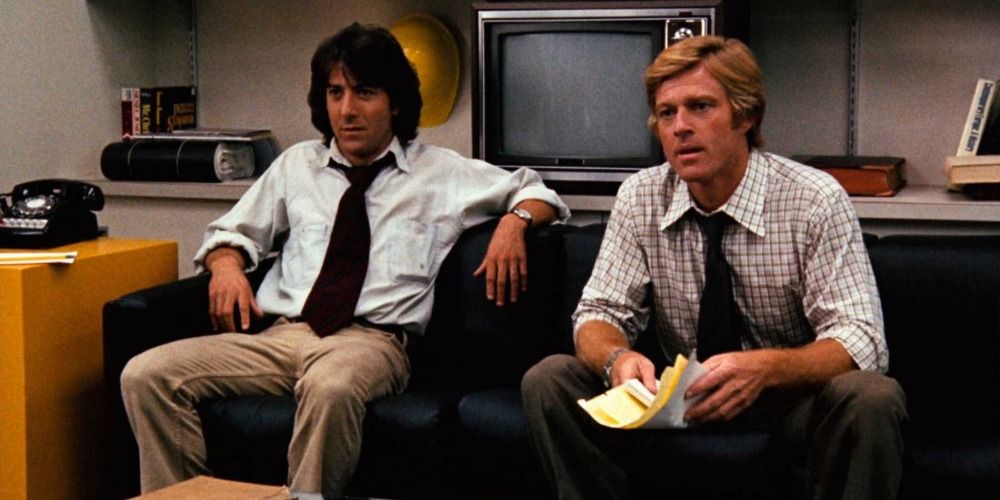
Dustin Hoffman and Robert Redford star in All the President’s Men as Carl Bernstein and Bob Woodward, respectively, the journalists who uncovered the Watergate scandal, and their chemistry keeps the audience invested in every step of their true-to-life caper.
Alan J. Pakula turned William Goldman’s airtight script into a movie that plays like a high-concept conspiracy thriller, but with the shocking facts of the scandal that brought down the Nixon administration.
9 Three Days Of The Condor (1975)
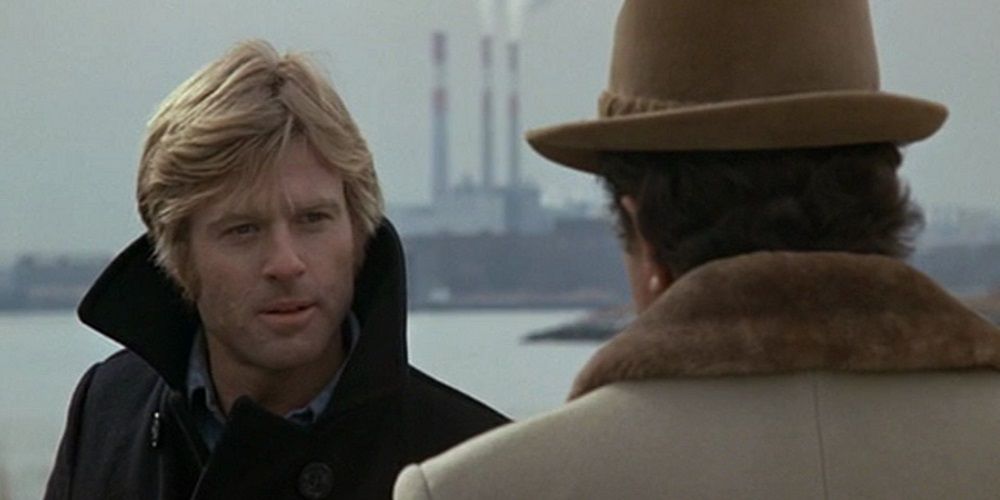
Robert Redford, poster boy of the political thriller, and Faye Dunaway headline Sydney Pollack’s Three Days of the Condor, which tells the story of a CIA researcher who finds all his co-workers dead and struggles to stay ahead of the people responsible.
Much like All the President’s Men, Pollack’s movie captured the paranoia that permeated throughout post-Watergate America, but it doesn’t address Watergate directly.
8 Notorious (1946)
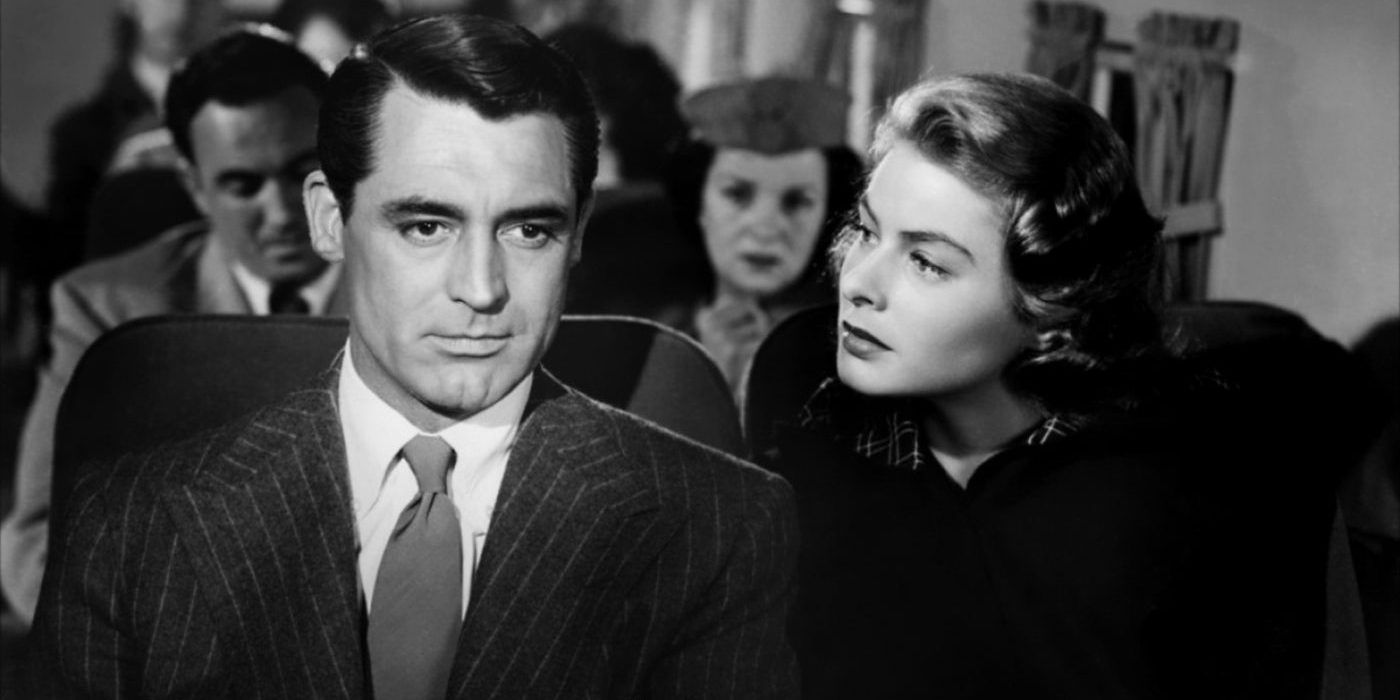
Alfred Hitchcock’s Notorious is a mixture of a few different genres — film noir, spy movies, political thrillers — but its core story is a romance about the love triangle between Ingrid Bergman and two men who fall in love with her.
The political elements of the movie are secondary to the love story, but Notorious tackled Nazism less than a year after the Second World War ended.
7 Munich (2005)
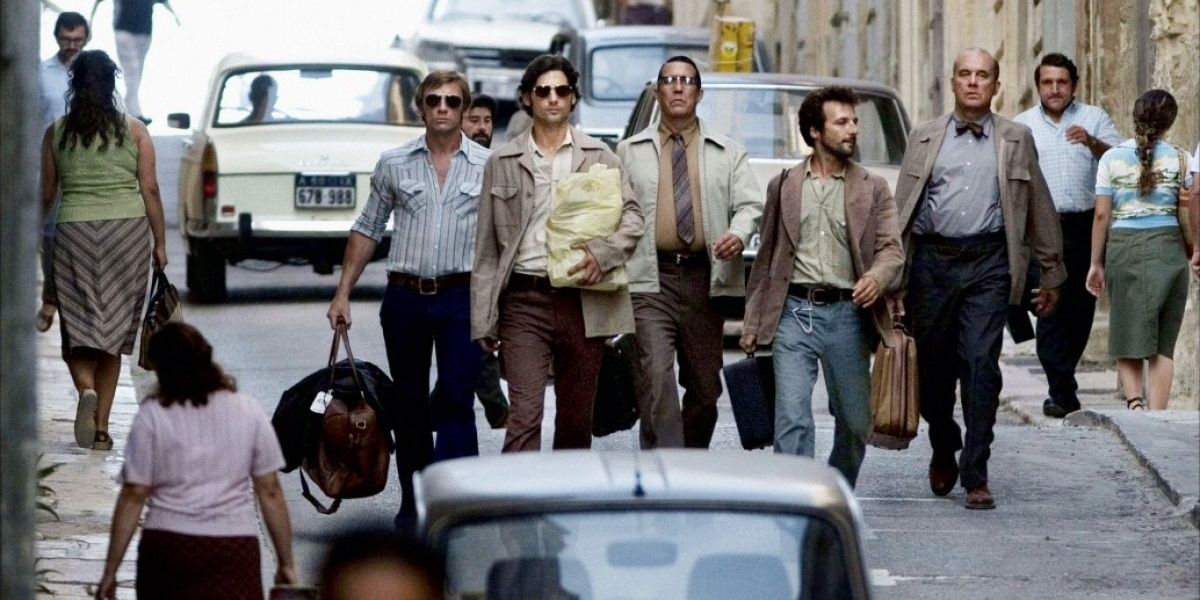
Thanks to movies like E.T. and A.I., Steven Spielberg has earned a reputation as a sentimental filmmaker who can occasionally border on the treacly. But the director proved with his harrowing portrait of the Holocaust in Schindler’s List that he’s just as capable of telling grim, deeply affecting stories based on the ugliest chapters of human history.
Spielberg brought this darker mentality — and a Hitchcockian command of suspense — to Munich, his cinematic account of Operation Wrath of God, the Israeli government’s covert retaliation effort against the Palestine Liberation Organization following the 1972 Summer Olympics massacre.
6 Seven Days In May (1964)
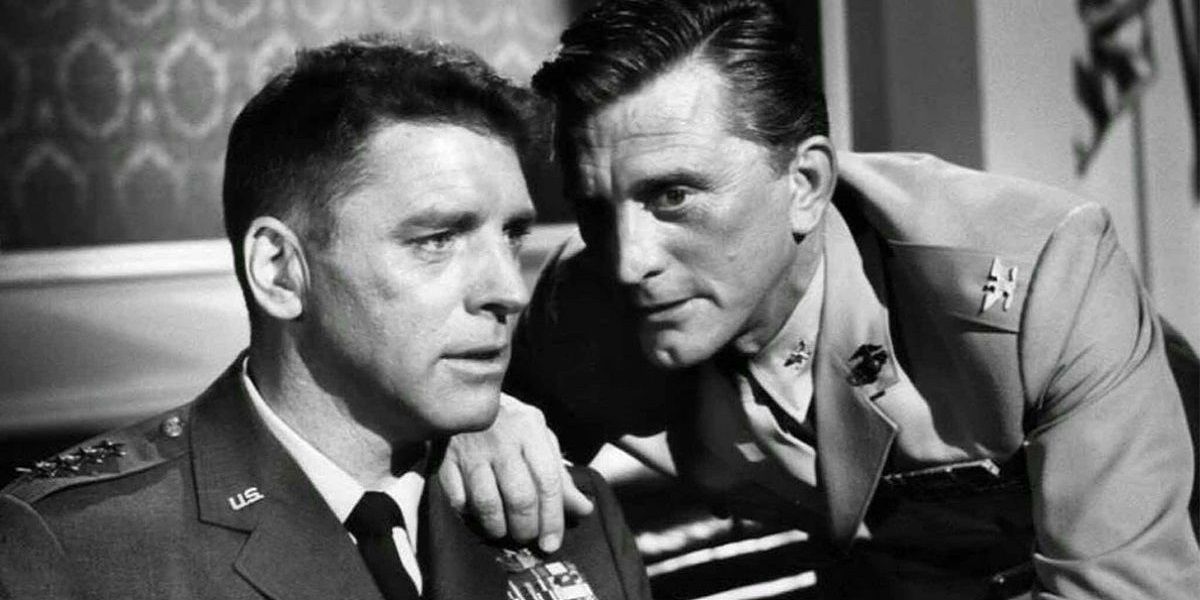
John Frankenheimer’s Seven Days in May tells the nail-biting tale of a bunch of U.S. military leaders who fear an imminent attack by the Soviets and plot to overthrow the President after he pledges to enter a nuclear demilitarization treaty.
The screenplay was written by none other than Twilight Zone creator Rod Serling, one of the greatest storytellers who ever lived, and the cast features such iconic stars as Kirk Douglas, Burt Lancaster, and Ava Gardner.
5 The Conversation (1974)
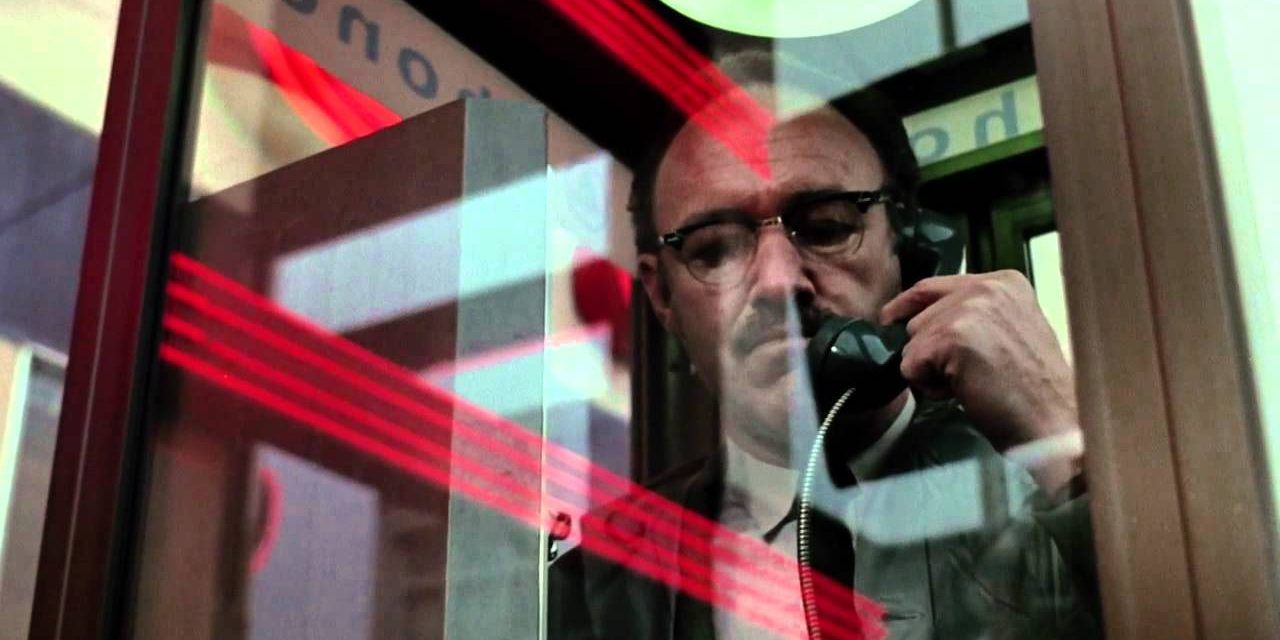
Francis Ford Coppola made so many of the greatest movies of all time in the 1970s — The Godfather, The Godfather Part II, Apocalypse Now — that one of them has fallen by the wayside. The Conversation is an underrated post-Watergate gem starring Gene Hackman as a surveillance expert who hears something he wasn’t supposed to and becomes paranoid that the government is coming to get him.
Coppola masterfully captured the fears of the Watergate era on film, while Hackman plays Harry Caul with a relatable humanity that makes his circumstances all the more gripping.
4 The Day Of The Jackal (1973)
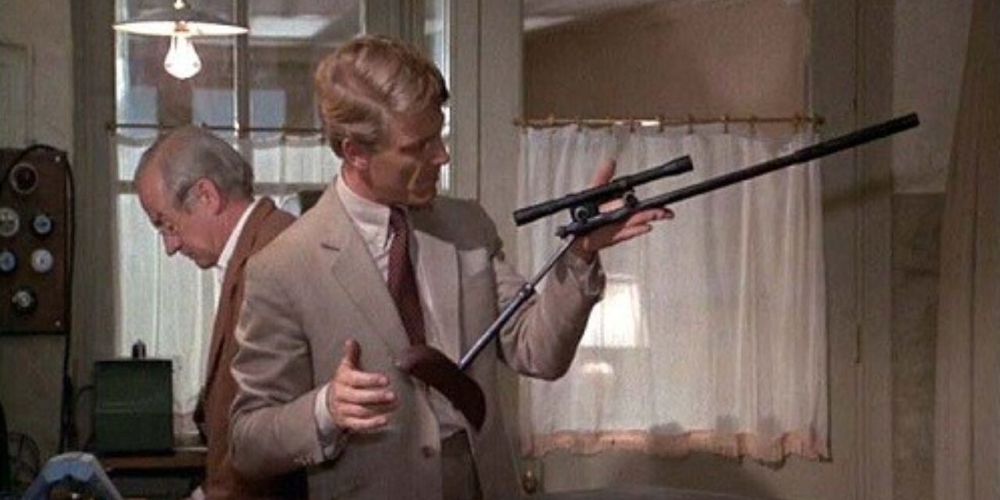
After a French paramilitary group tries and fails to assassinate President Charles de Gaulle, they resort to hiring a notorious contract killer known only as the “Jackal” to do the job.
As the Jackal kills anyone he has to kill on the way to taking out de Gaulle, a local police detective inches closer and closer to uncovering his true identity. Fred Zinnemann’s The Day of the Jackal is as tense as thrillers come.
3 The Parallax View (1974)
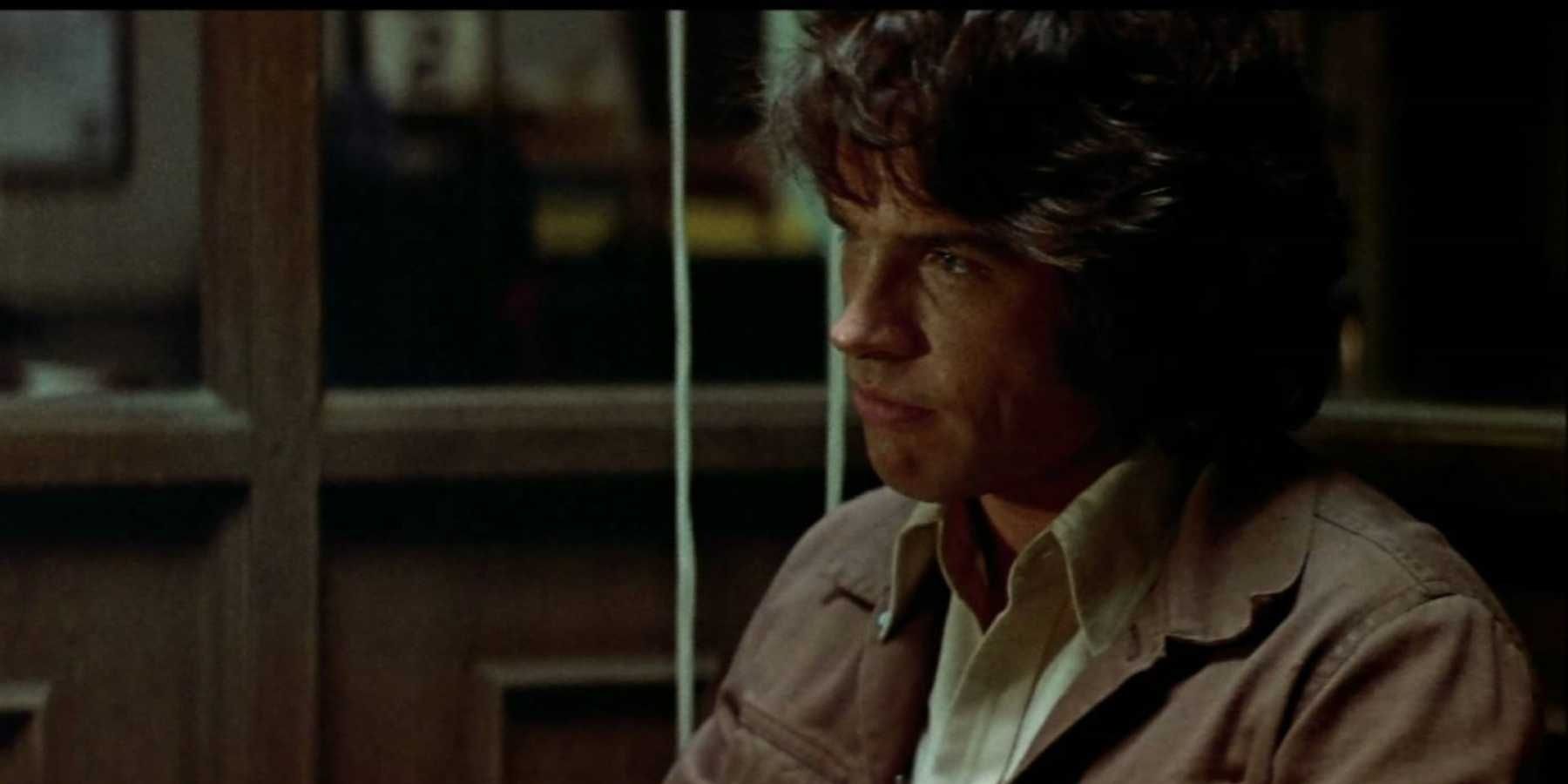
Alan J. Pakula’s "paranoia trilogy" concluded with All the President’s Men, but the first two installments are just as masterfully crafted. Klute is an offbeat noir that deals heavily in subtext and The Parallax View is a pulpy Kennedy-adjacent conspiracy thriller.
The latter stars Warren Beatty as a reporter who investigates the assassination of a presidential candidate and uncovers some terrifying secrets on the way to a jaw-dropping finale.
2 JFK (1991)

Oliver Stone’s JFK really hit the zeitgeist in the mid-‘90s — so much so that Seinfeld featured an extended parody of its climactic scene revolving around a “magic loogie” — and renewed public interest in the Kennedy assassination and all the conspiracy theories surrounding it.
Stone’s film looks at the assassination from a number of different angles and avoids taking a specific stance or drawing any definitive conclusions and just focuses on Jim Garrison’s personal journey. The scope of the investigation is as overwhelming to Garrison as it is to the audience.
1 The Manchurian Candidate (1962)
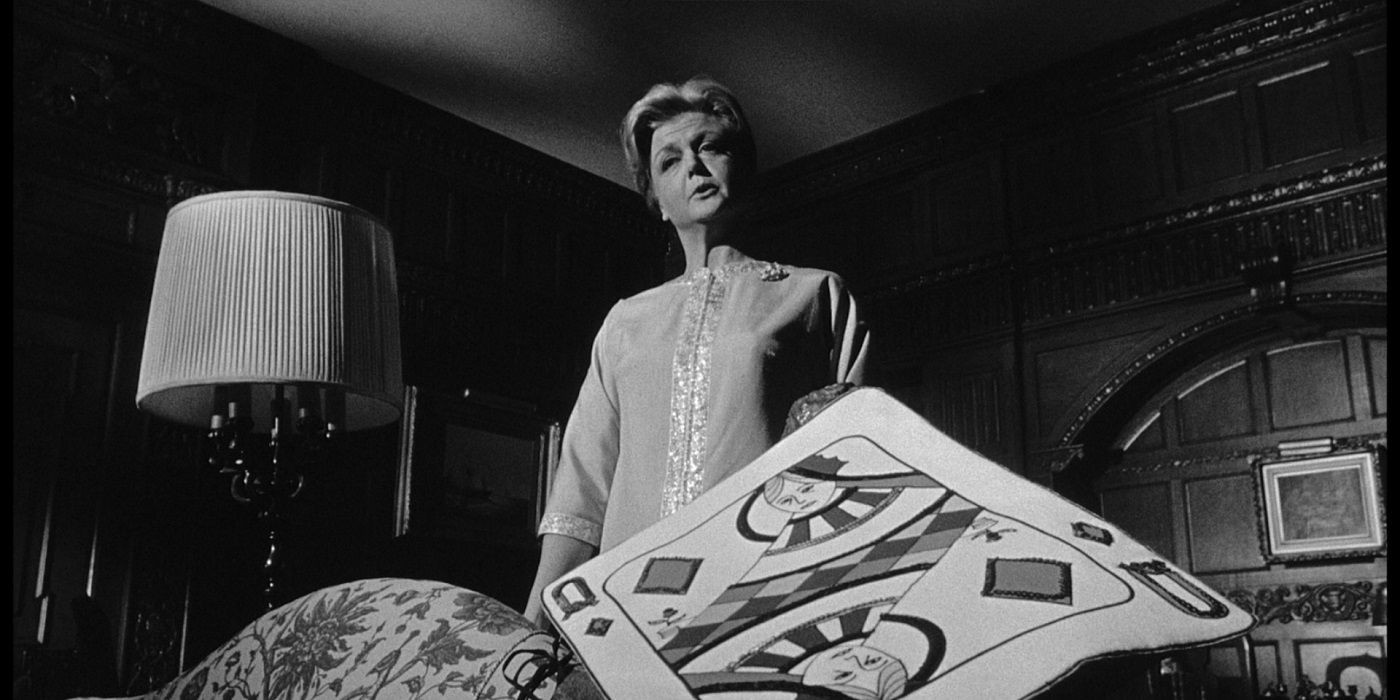
Another John Frankenheimer effort, The Manchurian Candidate is the perfect intersection of biting satire and edge-of-your-seat thrills. Featuring such A-listers as Frank Sinatra and Janet Leigh, the movie revolves around an American war hero who’s brainwashed by communists and sent back to the U.S. as a sleeper agent.
This movie had one of the timeliest releases in film history. It’s a movie about the fear of communism infiltrating the United States and it hit theaters in 1962, at the height of the Cuban Missile Crisis.
from ScreenRant - Feed
